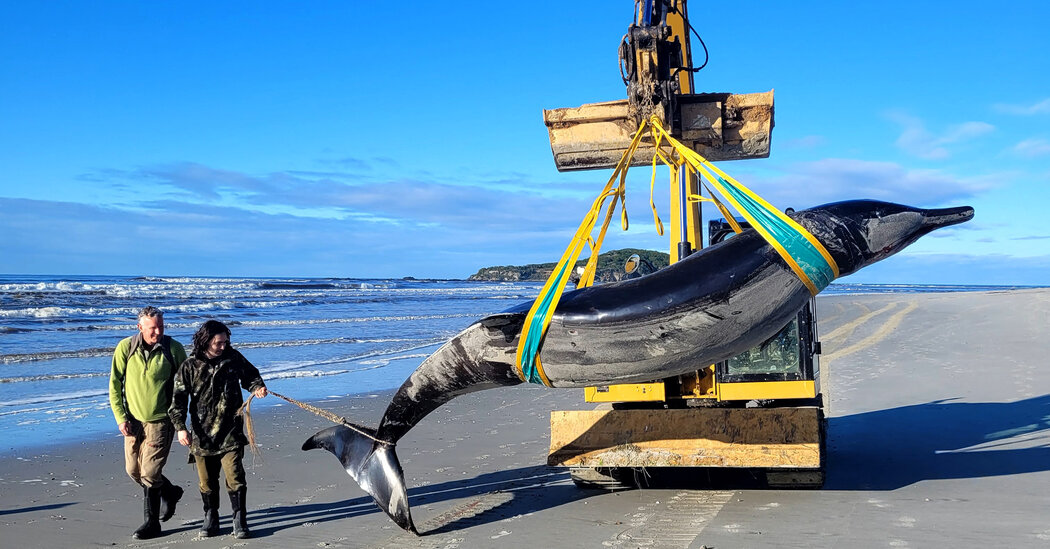World’s Rarest Whale Washes Up on New Zealand Beach, Scientists Say

As a hot spot for whale and dolphin strandings, residents of New Zealand are used to finding large sea creatures beached on their shores. But the creature that washed up on a beach in the nation’s south earlier this month — about 16 feet long, distinctively colored, its teeth snapped off — was no ordinary whale.
Scientists believe it is a carcass of the world’s rarest whale, so elusive that it has never been documented alive.
Just six other specimens of the creature, known as a spade-toothed whale, exist — skeletal samples and carcasses found decades apart over 150 years. Until 2010, scientists didn’t even know what the whale looked like. Still, almost nothing is known about the species, including how many of the whales exist, what they eat and how they behave.
This carcass, which came to the attention of local officials on July 4 after washing ashore near the mouth of the Taieri River in Otago, in the nation’s South Island, presents an unprecedented opportunity. It was discovered quickly and put into a freezer, in such a state that scientists could dissect a specimen for the first time.
“Everything we look at will be new to science,” Anton van Helden, an adviser on marine species for New Zealand’s Department of Conversation and an expert in spade-toothed whales, said in an interview on Tuesday.
The conservation agency announced the discovery on Monday, noting that samples from the whale had been sent for DNA testing to confirm its identity. But Mr. van Helden, who has studied the species for 35 years, said he was “100 percent confident” that it was a spade-toothed whale based on its distinctive coloring, the placement of its teeth and the shape of its jaw.
